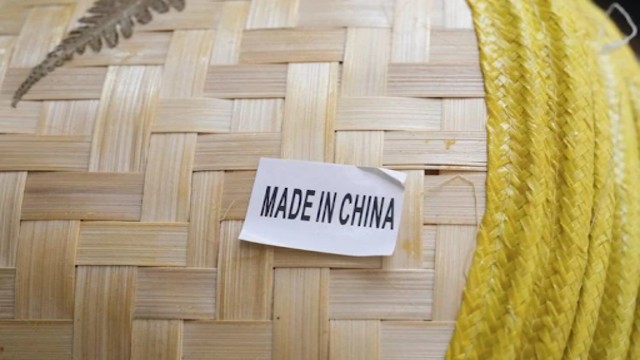
China Weighs US Trade Talks, But Tariffs Still a Hurdle. (AP Photo)
Beijing has made its position crystal clear. If Washington wants to talk, it must first act—by removing tariffs. On Friday, China’s Ministry of Commerce said it is open to trade negotiations with the U.S., but only if America takes the first step. That includes steep tariff rollback, which has become the core of the economic standoff.
Open to Dialogue, But Not at Any Cost
In a fresh statement, the ministry reaffirmed China’s openness to trade talks. However, it stressed that any meaningful conversation must be backed by action. This includes reversing unilateral tariff hikes of up to 145%, which have been imposed under former President Donald Trump.
“These tariffs began with the U.S. If Washington wants talks, it must show sincerity,” the ministry stated.
China-US Trade talks Tariff Rollback
A spokesperson from the ministry, though unnamed, said that China is aware of recent signals from the U.S. Officials in Washington have reportedly tried to initiate contact several times, seeking talks. Beijing is currently assessing those efforts.
Despite these signals, Chinese officials remain skeptical. Without a change in tariff policy, the outreach is being seen as hollow.
“Words without action are meaningless,” the statement read. “China won’t fall for coercion or blackmail disguised as diplomacy.”
Markets React Amidst Uncertainty
Even with the Chinese mainland on a public holiday, the ripple effects were seen in Asian markets. Hong Kong’s shares rose by 1.7%, while Taiwan’s benchmark climbed 2.2%. U.S. futures also saw a lift, suggesting cautious optimism among investors.
New Tariffs Kick In, Disrupting Imports
The trade pressure continues to build. As of Friday, the U.S. has ended duty-free exemptions for low-value imports from China. This means tariffs now apply to every single shipment, potentially raising prices and causing delivery delays for American consumers.
China Hits Back with Its Own Measures
In retaliation, China has slapped tariffs of up to 125% on U.S. goods. It has also tightened export restrictions on key minerals and halted imports of several American farm products.
Moreover, Beijing is working with other countries to resist U.S. pressure and reduce dependency on American trade.
Trump's Toughest Measures Target China
Trump's tariff campaign, including a 10% global import tax, was aimed at bringing manufacturing back to the U.S. While some tariffs were delayed for negotiation, China faced the harshest blows.
Frequent tariff changes and policy reversals have confused businesses and investors, hurting global confidence.
U.S. Sees Tariffs as Leverage
Treasury Secretary Scott Bessent believes tariffs are working. He recently said China would eventually return to the negotiating table because the economic pain isn’t sustainable.
“The main issue isn’t just tariffs,” Bessent said. “It’s China’s long-standing bad behavior—cyberhacking, trademark theft, and more.”
China Refuses to Back Down
China, however, isn’t budging. In a bold video posted by its foreign ministry, Beijing declared it won’t "kneel" in this trade war.
“Kneeling only invites more bullying,” the message said—making it clear that China plans to stand firm.















